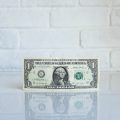When people learn that Mormons are taught to compile a year’s supply of food and other necessities, they often picture paranoid people stockpiling for doomsday or a nuclear disaster of some kind. While some people have used their supplies in a crisis, such as Hurricane Katrina, most use it for much more ordinary moments, such as unemployment, illness, or even just to save money.
 When there is no income, it is reassuring to know you have plenty of food on hand, savings, and little or no debt. This can allow you to get through a time of unemployment, or if you’re paid hourly, to get through several weeks or months of illness that prevents you from working. My husband and I are both self-employed, with his income providing for most of our living expenses, so we’ve learned to always be prepared. When you’re self-employed, you know there isn’t a Friday paycheck. Clients are late, or a contract is slow in coming. You must always be ready to take care of yourself without income for a time. This has taught us to spend meaningfully.
When there is no income, it is reassuring to know you have plenty of food on hand, savings, and little or no debt. This can allow you to get through a time of unemployment, or if you’re paid hourly, to get through several weeks or months of illness that prevents you from working. My husband and I are both self-employed, with his income providing for most of our living expenses, so we’ve learned to always be prepared. When you’re self-employed, you know there isn’t a Friday paycheck. Clients are late, or a contract is slow in coming. You must always be ready to take care of yourself without income for a time. This has taught us to spend meaningfully.
In order to live providently, you must be willing to forego some of the things you want. When we insist on having everything we want right now, we are unable to save money and are tempted to put it on a credit card or payment plan. “No money down and nothing due until next April” is a dangerous cry. You don’t know where your life will be in April, and getting caught up in too many of these deals can unexpectedly leave you with too many payments because you didn’t realize how many delayed payments you had created.
The first step to living a self-sufficient lifestyle is to determine the difference between a want and a need. One teacher was often frustrated because her students invariably described cable television as a need. When the economy turned, many soon learned it was possible to live a happy life without cable television. Sit down and make a list of those things that are essential expenses—housing, utilities, food, and so forth. Include the payments for anything you are currently purchasing through credit.
Next, make a list of things you’d like to have but could live without if you had to do so. These might include supplies for your favorite hobbies, vacations, and meals out. Mark those that are the most important to you. Which ones are most essential to help you feel relaxed when times are hard? You will find it helpful to make a written, prioritized list. Everything at the bottom of the list is most likely non-essential and can be eliminated if needed.
The next step, now that you’ve prioritized your expenses, is to figure out if you’re living within your means. If you have credit card or other debt, or if you run out of money before the next paycheck or can’t handle small emergencies, you are probably not living within your expenses. It’s time to make some changes. Begin by eliminating some of your non-essential expenses, using the priority lists you made earlier. Start at the bottom and eliminate the last item. Then eliminate the new last item. Once you’ve eliminated enough to no longer require credit cards to make it through the month, you’ll have to cut out a few more things to come up with extra income. You need to be able to put some money into building a buffer in your bank account or savings account, and also to increase the amount you’re paying on your debt each month. Paying only the minimums will keep you from ever paying them off. Each time you pay off a card, apply those payments to another debt, to increase the speed at which you’re paying down the debt. If you come into extra money from time to time, apply it to the debt, not a treat.
When the debt is paid off, it’s time to focus all the debt repayment money you had budgeted on building a reserve. Aim to have a year’s supply of income put away, long enough to cover most unemployment, serious illnesses, or unexpected major expenses.
As you are doing all of this you can begin to put aside a year’s supply of food and commodities. Make a list of food that would sustain life if you were unable to shop at all, and begin by building those. Visit Provident Living.org to learn how to build a three month supply of things you normally use, and then to build a longer supply. You’ll also learn how to store water in case of a natural disaster, such as a flood, when water may not be available.
Don’t go into debt to build the supply all at once. Buy a little extra each week as you shop. As you focus on learning to shop less expensively, you’ll have extra money in your shopping budget, which can be partially used to build your supply. Watch for sales and buy in bulk when it makes financial sense to do so. Date the cans of food so you know when you bought them and don’t buy more than you can use before it goes bad. Find out how long everything keeps. Rotate your supply so you’re always using the oldest items first.
Learn cooking techniques that will allow you to cook from scratch if you need to do so. Learn to bake bread even if you don’t do it often and make sure you have the materials needed to do it. Homemade bread is inexpensive and filling.
Learn to garden, even if it’s just a few pots on your balcony. Having a few vegetables growing gives you a living food storage, and access to fresh foods when you can’t shop.
Purchase for the long run. When you buy new things, think about how long and how often you will use them, and choose the best quality you can afford. This doesn’t mean you need the most prestigious brand, just that you should do your research. If reviewers say the item breaks after a few uses, don’t buy it. Try to buy things that last, even if they are less attractive or popular. This way, you aren’t replacing things as often. The less you shop, the less you spend in the long run.
Make a budget–a spending plan–and stay on it. If there is room in the budget, plan a few treats, but plan them. This makes it easier to plan a picnic in the park instead of an impromptu outing to buy a large-screen television.
Because of the current economy, there are many websites and books on provident living. Some are more reliable than others, so study them, choose what is useful, and discard the rest. Learning to live providently before you need to is always easier than doing it because you have no choice. It will soon become a way of life.
When people learn that Mormons are taught to compile a year’s supply of food and other necessities, they often picture paranoid people stockpiling for doomsday or a nuclear disaster of some kind. While some people have used their supplies in a crisis, such as Hurricane Katrina, most use it for much more ordinary moments, such as unemployment, illness, or even just to save money.
When there is no income, it is reassuring to know you have plenty of food on hand, savings, and little or no debt. This can allow you to get through a time of unemployment, or if you’re paid hourly, to get through several weeks or months of illness that prevents you from working. My husband and I are both self-employed, with his income providing for most of our living expenses, so we’ve learned to always be prepared. When you’re self-employed, you know there isn’t a Friday paycheck. Clients are late, or a contract is slow in coming. You must always be ready to take care of yourself without income for a time. This has taught us to spend meaningfully.
In order to live providently, you must be willing to forego some of the things you want. When we insist on having everything we want right now, we are unable to save money and are tempted to put it on a credit card or payment plan. “No money down and nothing due until next April” is a dangerous cry. You don’t know where your life will be in April, and getting caught up in too many of these deals can unexpectedly leave you with too many payments because you didn’t realize how many delayed payments you had created.
The first step to living a self-sufficient lifestyle is to determine the difference between a want and a need. One teacher was often frustrated because her students invariably described cable television as a need. When the economy turned, many soon learned it was possible to live a happy life without cable television. Sit down and make a list of those things that are essential expenses—housing, utilities, food, and so forth. Include the payments for anything you are currently purchasing through credit.
Next, make a list of things you’d like to have but could live without if you had to do so. These might include supplies for your favorite hobbies, vacations, and meals out. Mark those that are the most important to you. Which ones are most essential to help you feel relaxed when times are hard? You will find it helpful to make a written, prioritized list. Everything at the bottom of the list is most likely non-essential and can be eliminated if needed.
The next step, now that you’ve prioritized your expenses, is to figure out if you’re living within your means. If you have credit card or other debt, or if you run out of money before the next paycheck or can’t handle small emergencies, you are probably not living within your expenses. It’s time to make some changes. Begin by eliminating some of your non-essential expenses, using the priority lists you made earlier. Start at the bottom and eliminate the last item. Then eliminate the new last item. Once you’ve eliminated enough to no longer require credit cards to make it through the month, you’ll have to cut out a few more things to come up with extra income. You need to be able to put some money into building a buffer in your bank account or savings account, and also to increase the amount you’re paying on your debt each month. Paying only the minimums will keep you from ever paying them off. Each time you pay off a card, apply those payments to another debt, to increase the speed at which you’re paying down the debt. If you come into extra money from time to time, apply it to the debt, not a treat.
When the debt is paid off, it’s time to focus all the debt repayment money you had budgeted on building a reserve. Aim to have a year’s supply of income put away, long enough to cover most unemployment, serious illnesses, or unexpected major expenses.
As you are doing all of this you can begin to put aside a year’s supply of food and commodities. Make a list of food that would sustain life if you were unable to shop at all, and begin by building those. Visit Provident Living.org to learn how to build a three month supply of things you normally use, and then to build a longer supply. You’ll also learn how to store water in case of a natural disaster, such as a flood, when water may not be available.
Don’t go into debt to build the supply all at once. Buy a little extra each week as you shop. As you focus on learning to shop less expensively, you’ll have extra money in your shopping budget, which can be partially used to build your supply. Watch for sales and buy in bulk when it makes financial sense to do so. Date the cans of food so you know when you bought them and don’t buy more than you can use before it goes bad. Find out how long everything keeps. Rotate your supply so you’re always using the oldest items first.
Learn cooking techniques that will allow you to cook from scratch if you need to do so. Learn to bake bread even if you don’t do it often and make sure you have the materials needed to do it. Homemade bread is inexpensive and filling.
Learn to garden, even if it’s just a few pots on your balcony. Having a few vegetables growing gives you a living food storage, and access to fresh foods when you can’t shop.
Purchase for the long run. When you buy new things, think about how long and how often you will use them, and choose the best quality you can afford. This doesn’t mean you need the most prestigious brand, just that you should do your research. If reviewers say the item breaks after a few uses, don’t buy it. Try to buy things that last, even if they are less attractive or popular. This way, you aren’t replacing things as often. The less you shop, the less you spend in the long run.
Because of the current economy, there are many websites and books on provident living. Some are more reliable than others, so study them, choose what is useful, and discard the rest. Learning to live providently before you need to is always easier than doing it because you have no choice. It will soon become a way of life.
When people learn that Mormons are taught to compile a year’s supply of food and other necessities, they often picture paranoid people stockpiling for doomsday or a nuclear disaster of some kind. While some people have used their supplies in a crisis, such as Hurricane Katrina, most use it for much more ordinary moments, such as unemployment, illness, or even just to save money.
When there is no income, it is reassuring to know you have plenty of food on hand, savings, and little or no debt. This can allow you to get through a time of unemployment, or if you’re paid hourly, to get through several weeks or months of illness that prevents you from working. My husband and I are both self-employed, with his income providing for most of our living expenses, so we’ve learned to always be prepared. When you’re self-employed, you know there isn’t a Friday paycheck. Clients are late, or a contract is slow in coming. You must always be ready to take care of yourself without income for a time. This has taught us to spend meaningfully.
In order to live providently, you must be willing to forego some of the things you want. When we insist on having everything we want right now, we are unable to save money and are tempted to put it on a credit card or payment plan. “No money down and nothing due until next April” is a dangerous cry. You don’t know where your life will be in April, and getting caught up in too many of these deals can unexpectedly leave you with too many payments because you didn’t realize how many delayed payments you had created.
The first step to living a self-sufficient lifestyle is to determine the difference between a want and a need. One teacher was often frustrated because her students invariably described cable television as a need. When the economy turned, many soon learned it was possible to live a happy life without cable television. Sit down and make a list of those things that are essential expenses—housing, utilities, food, and so forth. Include the payments for anything you are currently purchasing through credit.
Next, make a list of things you’d like to have but could live without if you had to do so. These might include supplies for your favorite hobbies, vacations, and meals out. Mark those that are the most important to you. Which ones are most essential to help you feel relaxed when times are hard? You will find it helpful to make a written, prioritized list. Everything at the bottom of the list is most likely non-essential and can be eliminated if needed.
The next step, now that you’ve prioritized your expenses, is to figure out if you’re living within your means. If you have credit card or other debt, or if you run out of money before the next paycheck or can’t handle small emergencies, you are probably not living within your expenses. It’s time to make some changes. Begin by eliminating some of your non-essential expenses, using the priority lists you made earlier. Start at the bottom and eliminate the last item. Then eliminate the new last item. Once you’ve eliminated enough to no longer require credit cards to make it through the month, you’ll have to cut out a few more things to come up with extra income. You need to be able to put some money into building a buffer in your bank account or savings account, and also to increase the amount you’re paying on your debt each month. Paying only the minimums will keep you from ever paying them off. Each time you pay off a card, apply those payments to another debt, to increase the speed at which you’re paying down the debt. If you come into extra money from time to time, apply it to the debt, not a treat.
When the debt is paid off, it’s time to focus all the debt repayment money you had budgeted on building a reserve. Aim to have a year’s supply of income put away, long enough to cover most unemployment, serious illnesses, or unexpected major expenses.
As you are doing all of this you can begin to put aside a year’s supply of food and commodities. Make a list of food that would sustain life if you were unable to shop at all, and begin by building those. Visit Provident Living.org to learn how to build a three month supply of things you normally use, and then to build a longer supply. You’ll also learn how to store water in case of a natural disaster, such as a flood, when water may not be available.
Don’t go into debt to build the supply all at once. Buy a little extra each week as you shop. As you focus on learning to shop less expensively, you’ll have extra money in your shopping budget, which can be partially used to build your supply. Watch for sales and buy in bulk when it makes financial sense to do so. Date the cans of food so you know when you bought them and don’t buy more than you can use before it goes bad. Find out how long everything keeps. Rotate your supply so you’re always using the oldest items first.
Learn cooking techniques that will allow you to cook from scratch if you need to do so. Learn to bake bread even if you don’t do it often and make sure you have the materials needed to do it. Homemade bread is inexpensive and filling.
Learn to garden, even if it’s just a few pots on your balcony. Having a few vegetables growing gives you a living food storage, and access to fresh foods when you can’t shop.
Purchase for the long run. When you buy new things, think about how long and how often you will use them, and choose the best quality you can afford. This doesn’t mean you need the most prestigious brand, just that you should do your research. If reviewers say the item breaks after a few uses, don’t buy it. Try to buy things that last, even if they are less attractive or popular. This way, you aren’t replacing things as often. The less you shop, the less you spend in the long run.
Because of the current economy, there are many websites and books on provident living. Some are more reliable than others, so study them, choose what is useful, and discard the rest. Learning to live providently before you need to is always easier than doing it because you have no choice. It will soon become a way of life.
When people learn that Mormons are taught to compile a year’s supply of food and other necessities, they often picture paranoid people stockpiling for doomsday or a nuclear disaster of some kind. While some people have used their supplies in a crisis, such as Hurricane Katrina, most use it for much more ordinary moments, such as unemployment, illness, or even just to save money.
When there is no income, it is reassuring to know you have plenty of food on hand, savings, and little or no debt. This can allow you to get through a time of unemployment, or if you’re paid hourly, to get through several weeks or months of illness that prevents you from working. My husband and I are both self-employed, with his income providing for most of our living expenses, so we’ve learned to always be prepared. When you’re self-employed, you know there isn’t a Friday paycheck. Clients are late, or a contract is slow in coming. You must always be ready to take care of yourself without income for a time. This has taught us to spend meaningfully.
In order to live providently, you must be willing to forego some of the things you want. When we insist on having everything we want right now, we are unable to save money and are tempted to put it on a credit card or payment plan. “No money down and nothing due until next April” is a dangerous cry. You don’t know where your life will be in April, and getting caught up in too many of these deals can unexpectedly leave you with too many payments because you didn’t realize how many delayed payments you had created.
The first step to living a self-sufficient lifestyle is to determine the difference between a want and a need. One teacher was often frustrated because her students invariably described cable television as a need. When the economy turned, many soon learned it was possible to live a happy life without cable television. Sit down and make a list of those things that are essential expenses—housing, utilities, food, and so forth. Include the payments for anything you are currently purchasing through credit.
Next, make a list of things you’d like to have but could live without if you had to do so. These might include supplies for your favorite hobbies, vacations, and meals out. Mark those that are the most important to you. Which ones are most essential to help you feel relaxed when times are hard? You will find it helpful to make a written, prioritized list. Everything at the bottom of the list is most likely non-essential and can be eliminated if needed.
The next step, now that you’ve prioritized your expenses, is to figure out if you’re living within your means. If you have credit card or other debt, or if you run out of money before the next paycheck or can’t handle small emergencies, you are probably not living within your expenses. It’s time to make some changes. Begin by eliminating some of your non-essential expenses, using the priority lists you made earlier. Start at the bottom and eliminate the last item. Then eliminate the new last item. Once you’ve eliminated enough to no longer require credit cards to make it through the month, you’ll have to cut out a few more things to come up with extra income. You need to be able to put some money into building a buffer in your bank account or savings account, and also to increase the amount you’re paying on your debt each month. Paying only the minimums will keep you from ever paying them off. Each time you pay off a card, apply those payments to another debt, to increase the speed at which you’re paying down the debt. If you come into extra money from time to time, apply it to the debt, not a treat.
When the debt is paid off, it’s time to focus all the debt repayment money you had budgeted on building a reserve. Aim to have a year’s supply of income put away, long enough to cover most unemployment, serious illnesses, or unexpected major expenses.
As you are doing all of this you can begin to put aside a year’s supply of food and commodities. Make a list of food that would sustain life if you were unable to shop at all, and begin by building those. Visit Provident Living.org to learn how to build a three month supply of things you normally use, and then to build a longer supply. You’ll also learn how to store water in case of a natural disaster, such as a flood, when water may not be available.
Don’t go into debt to build the supply all at once. Buy a little extra each week as you shop. As you focus on learning to shop less expensively, you’ll have extra money in your shopping budget, which can be partially used to build your supply. Watch for sales and buy in bulk when it makes financial sense to do so. Date the cans of food so you know when you bought them and don’t buy more than you can use before it goes bad. Find out how long everything keeps. Rotate your supply so you’re always using the oldest items first.
Learn cooking techniques that will allow you to cook from scratch if you need to do so. Learn to bake bread even if you don’t do it often and make sure you have the materials needed to do it. Homemade bread is inexpensive and filling.
Learn to garden, even if it’s just a few pots on your balcony. Having a few vegetables growing gives you a living food storage, and access to fresh foods when you can’t shop.
Purchase for the long run. When you buy new things, think about how long and how often you will use them, and choose the best quality you can afford. This doesn’t mean you need the most prestigious brand, just that you should do your research. If reviewers say the item breaks after a few uses, don’t buy it. Try to buy things that last, even if they are less attractive or popular. This way, you aren’t replacing things as often. The less you shop, the less you spend in the long run.
Because of the current economy, there are many websites and books on provident living. Some are more reliable than others, so study them, choose what is useful, and discard the rest. Learning to live providently before you need to is always easier than doing it because you have no choice. It will soon become a way of life.
About Terrie Lynn Bittner
The late Terrie Lynn Bittner—beloved wife, mother, grandmother, and friend—was the author of two homeschooling books and numerous articles, including several that appeared in Latter-day Saint magazines. She became a member of the Church at the age of 17 and began sharing her faith online in 1992.






